Women's Gold - Our Shea Butter Story
Highlights from Evan’s January 2014 trip to Kperisi Village in northern Ghana to visit the women of the cooperative responsible for our shea butter. Evan is is working to create self-sufficiency in the Village.
After arriving in Accra, the capital of Ghana, our little group spent a day and a night resting and exploring the city before taking a short flight to Kumasi. From Kumasi, we would meet our drivers and begin the nine-hour journey northward.
A convoy of three ten-year-old Toyota Land Cruisers would carry us through many dozens of small villages, into the African savanna, a biome of tropical grassland, and deliver us to our ultimate destination, the village of Kperisi. Kperisi lies close to the city of Wa, in the northwestern region of Ghana, and the doorstep of the sub-Saharan desert. There our adventure would begin.
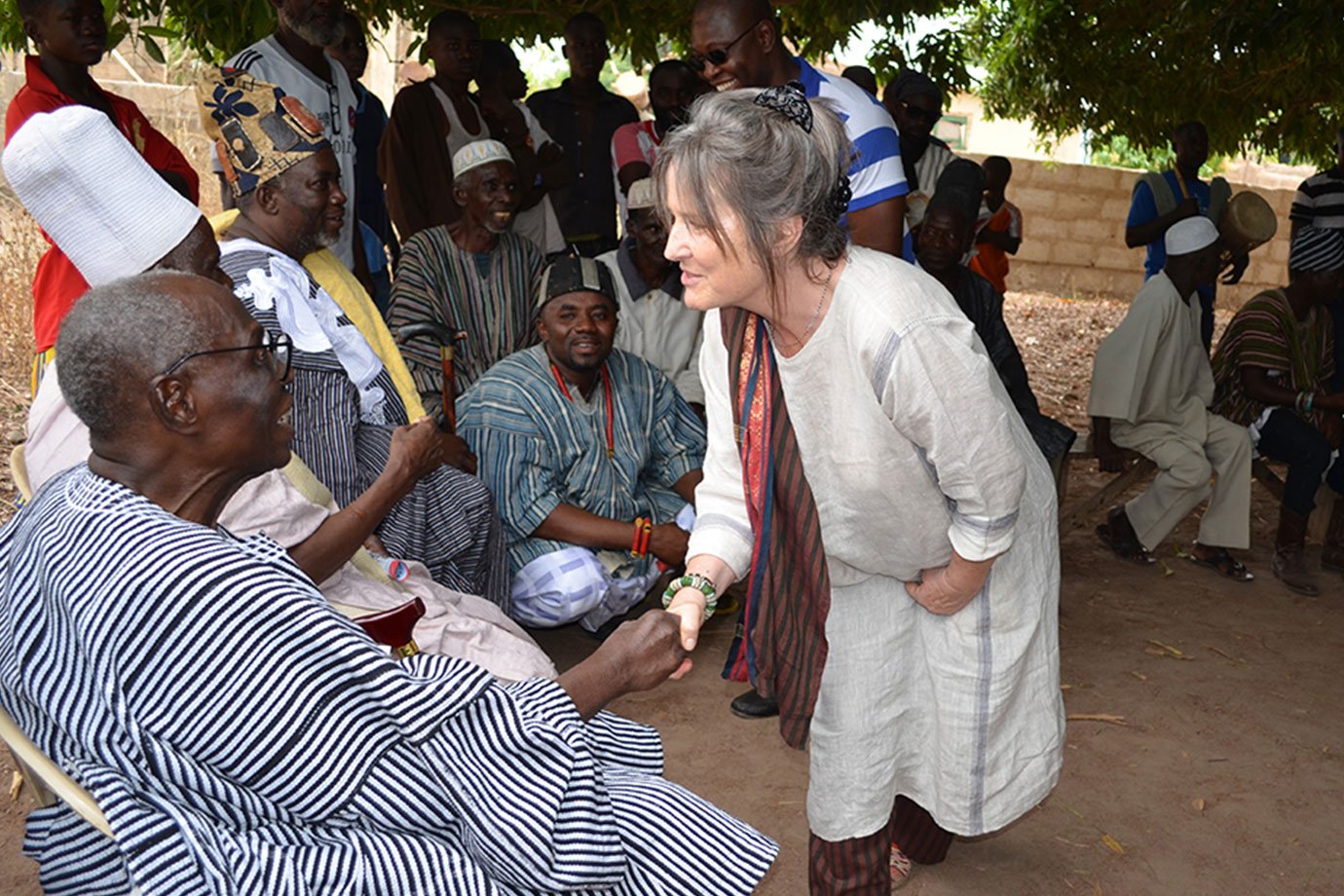
We spent time with the women of the shea butter collective, and over three days watched and participated in the incredibly labor-intensive process that goes into transforming raw unadulterated shea nut into the rich, creamy yellow butter that plays such a central role in so many of our products. For these women shea butter production is their sole livelihood and it plays a key role in the economic vitality of the whole community.
On our last day in the Village, we were touched and honored to be officially welcomed by the Chief and Village Elders in a Ceremony featuring traditional music and dance.


Remarkable Shea
This singular butter is creamy-golden in color. Rich in essential fatty acids, enzymes, vitamins and exhibiting impressive cooling and protective qualities, shea butter is remarkably versatile, offering nourishment and exceptional skin revitalizing activity. It is part of an age-old tradition and is used daily throughout one’s lifetime – to celebrate birth, to dress wounds, as a butter to cook with and a balm to moisturize skin and hair.
For centuries shea butter has been called “women’s gold” not only for its rich golden color, but also because it provides employment and income to millions of women across the continent. The ‘UN Development Programme’ estimates that an average of three million African women work directly or indirectly with shea butter.
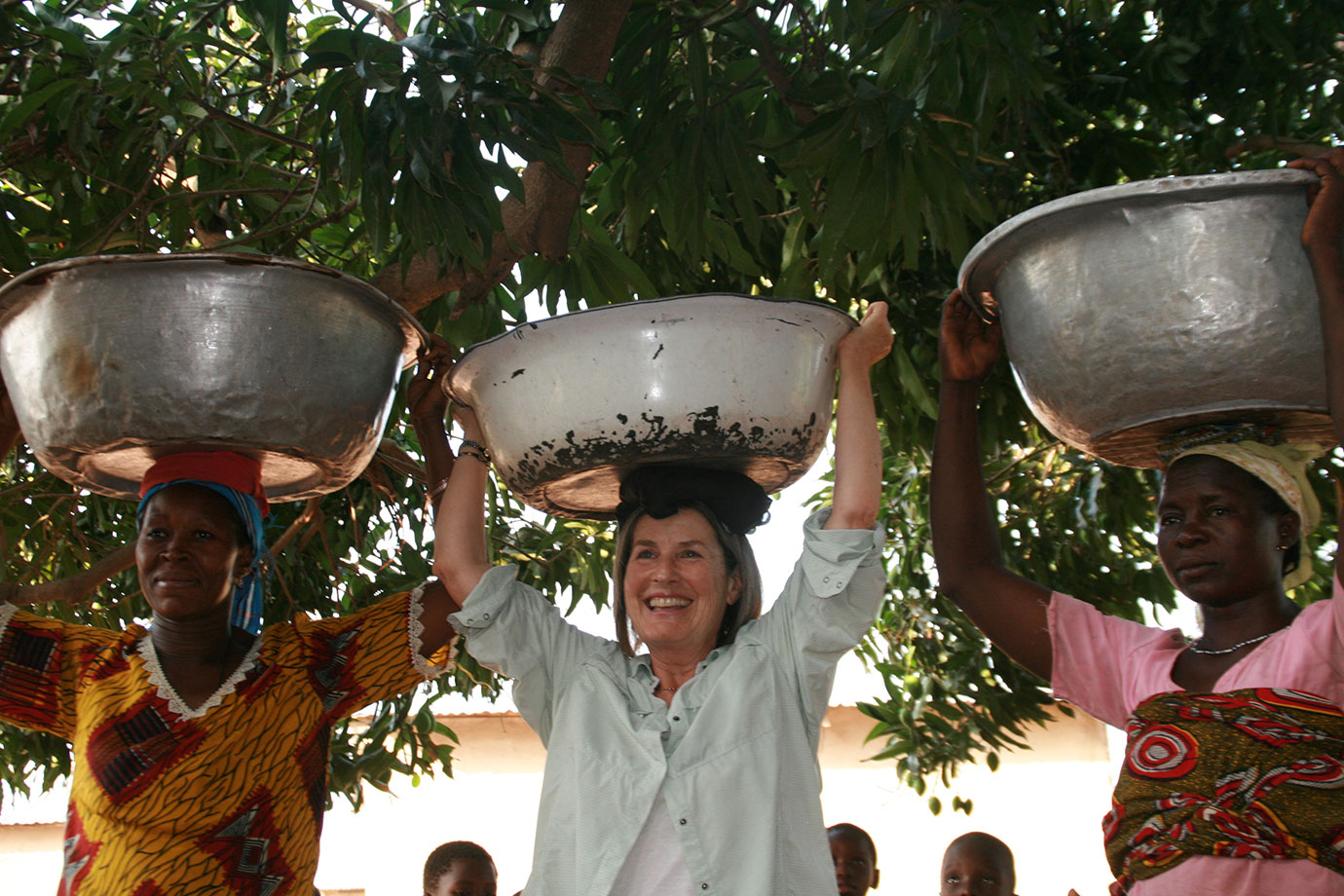
From Nut to Butter
After harvesting, the pits of the plum sized shea fruit are boiled and dried in the sun. The women crack the hard outer shells and remove the ‘kernels’, which they then roast and grind. The roasting takes place over an open flame fueled by wood found on the ground. Grinding is done by machine.
The resulting paste is then mixed with water and kneaded vigorously by hand to form an emulsion until it separates, with the fat, or oil, rising to the top. The fat is then scooped off, put into large bowls and cooked over an open fire until the water evaporates. It is then stirred or churned with wooden paddles to create a smooth butter. It cools till solid. Since each batch is made by hand it is normal for variations in color and texture to occur.
No chemicals or pesticides are used in the preparation of shea butter from Kperisi Village. In fact the production process is done by hand much the same way it has been for centuries.
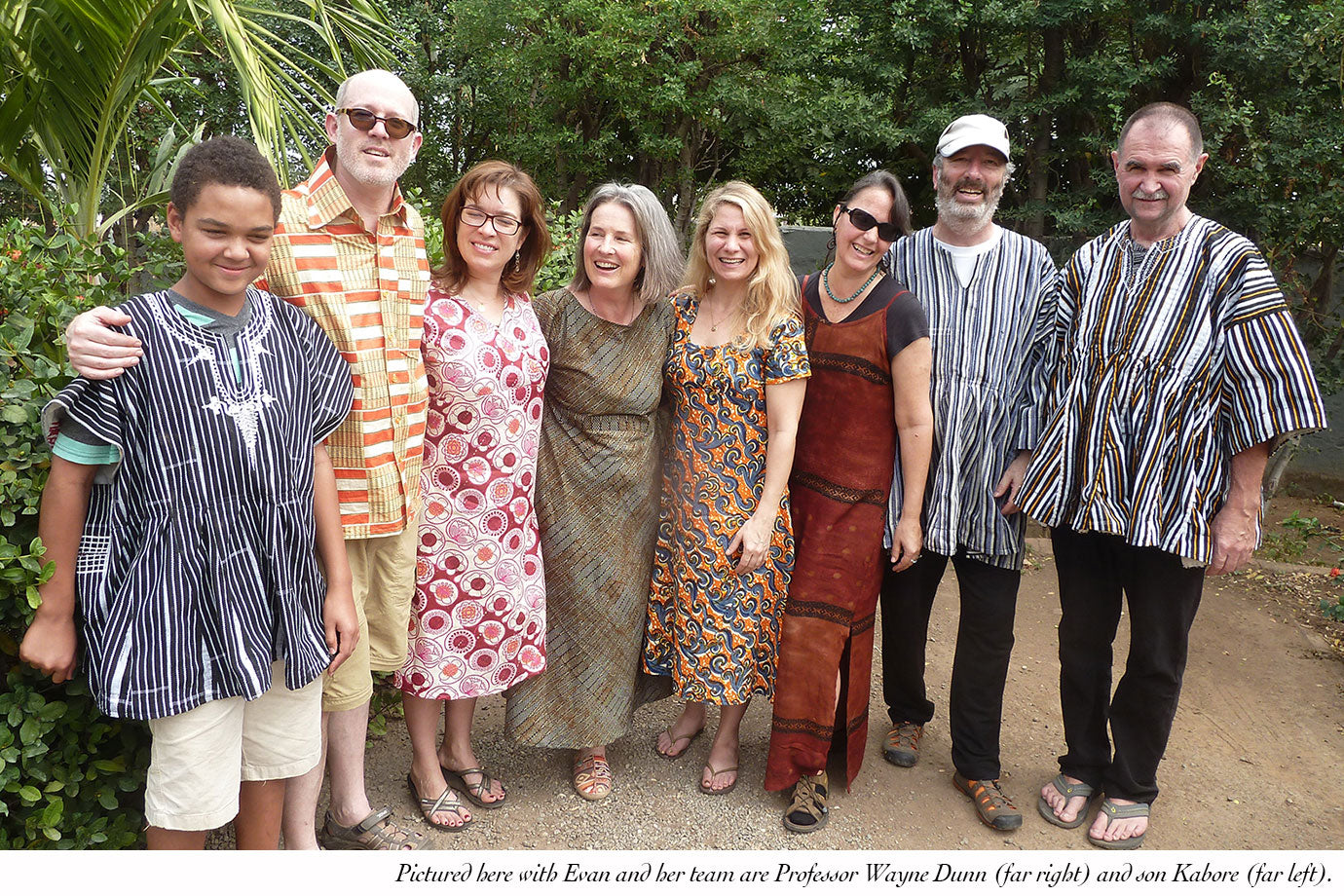
Organic and Fair Trade Certification
We began 2015 with a commitment to make organic and fair trade certification a reality. We immediately knew who to turn to in order to secure organic and fair trade certification: Waca Development Partners, a non-governmental organization.
The founders of Waca have been our guides these past many years in the world of shea butter. Waca’s mission is to initiate and support development projects with women, families and communities in Ghana’s northern regions. Waca is the creation of Wayne Dunn and Gifty Serbeh-Dunn. Gifty was born and raised in Wa, a neighboring town to Kperisi Village. Her father is a well-respected Chief in the community.
Wayne Dunn is President and Founder of the Corporate Social Responsibility (CSR) Training Institute and Professor of Practice in CSR at McGill University. He’s a Stanford University Sloan Fellow with a M.Sc. in Management from the Stanford University Graduate School of Business. Wayne is recognized globally as a CSR pioneer and a veteran of 25+ years and 70+ projects in the space where business meets society.
The trip to Kperisi, that we are celebrating in these pages, was made possible by the Dunns. And it was the time spent with Professor Dunn and his son Kabore in the Village, getting to know the children, women, families and elders that inspired Evan and her team to deepen their commitment to this extraordinary community.
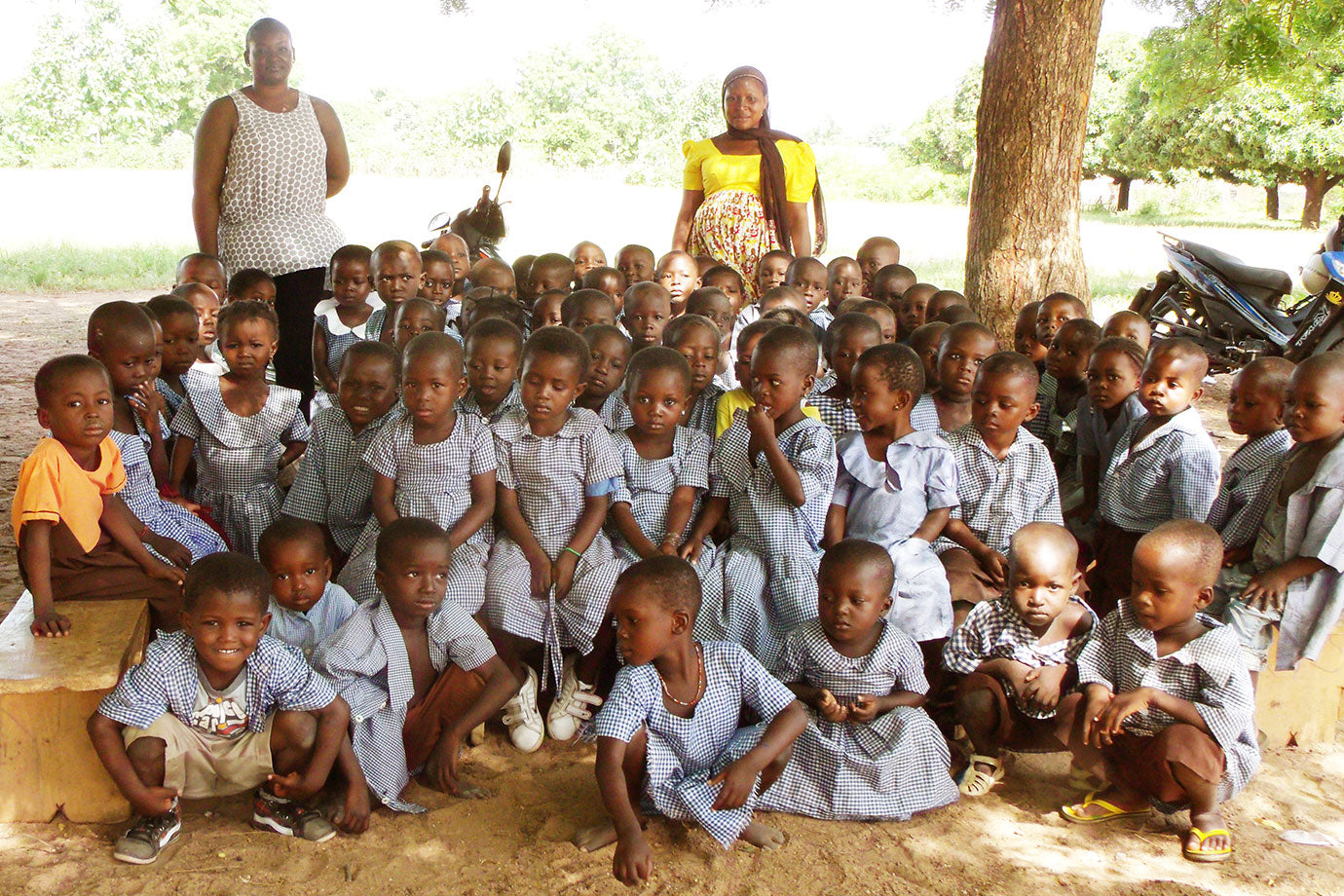
Our first project: School Uniforms
Upon returning from Ghana, our first project was creating School Uniforms for the 350 children of the Village. We funded this by contributing $1 from the purchase of our Whipped Shea Butter with Olive Leaf.
Going forward we have committed to providing additional uniforms as younger children come into school and as others outgrow their uniforms.
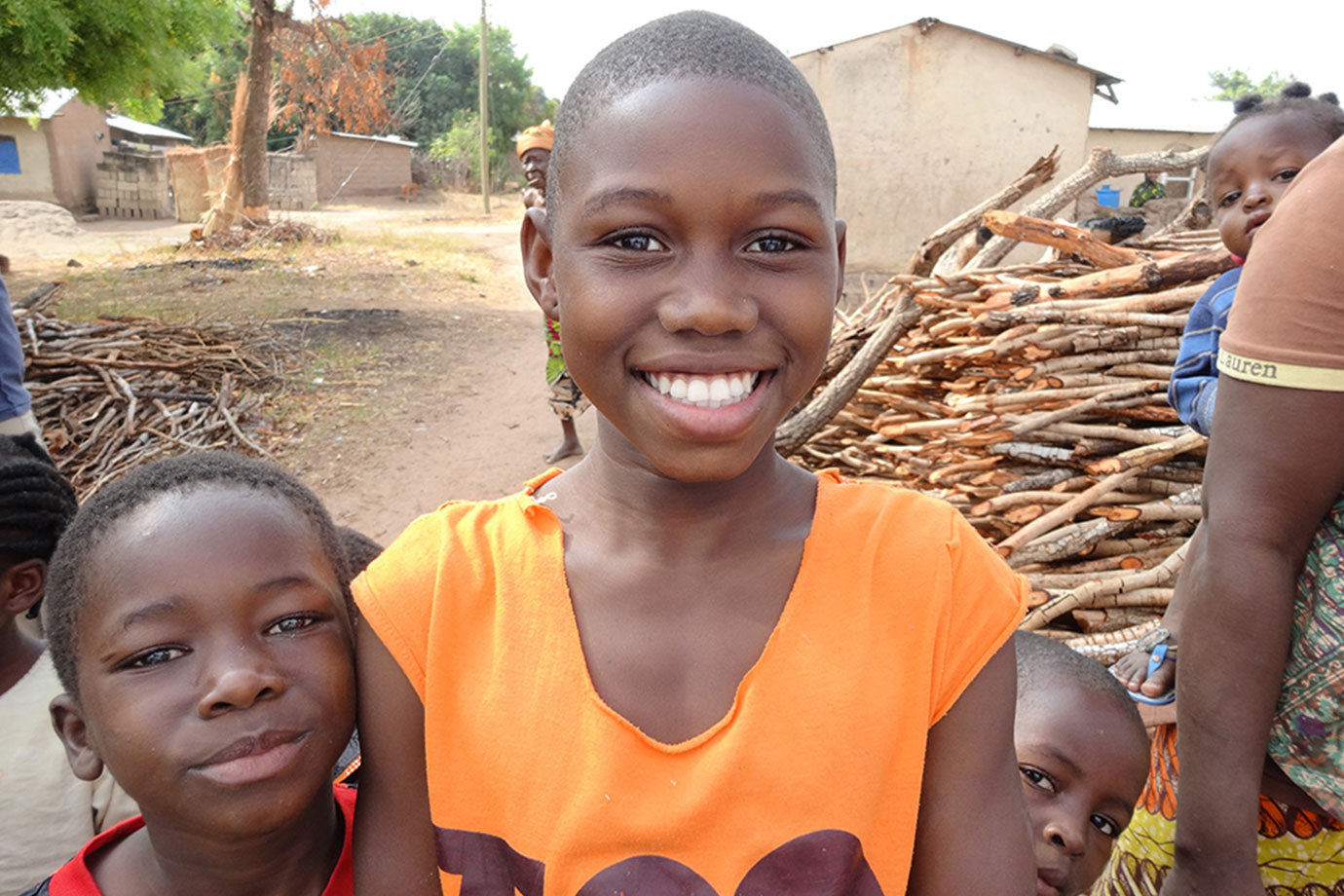

The Grinding Mill is the Life Force of the Community
This August, 2015, we made a commitment to fund a modern grinding mill for the Village. At present the women of the Village must walk a mile and a half with their harvest to use such a mill.
The grinding mill is central to the daily routine of women and families in Kperisi. When the women of the Village were asked what would have the most impact on the community, they immediately identified a grinding mill as the one thing that would improve health, education, household economics and village life. Food and crop processing would be more efficient, allowing more production, facilitating improved health and nutrition and enabling more children to go to school with proper supplies and equipment.
Through Waca, we are working with the Chief and the Women’s Cooperative Group to identify the land where the machine will be placed, to construct a building to house the machine, to purchase the machine and train operators, and to set up a financial and management system to ensure funds are available for repairs and maintenance to keep the machine working.
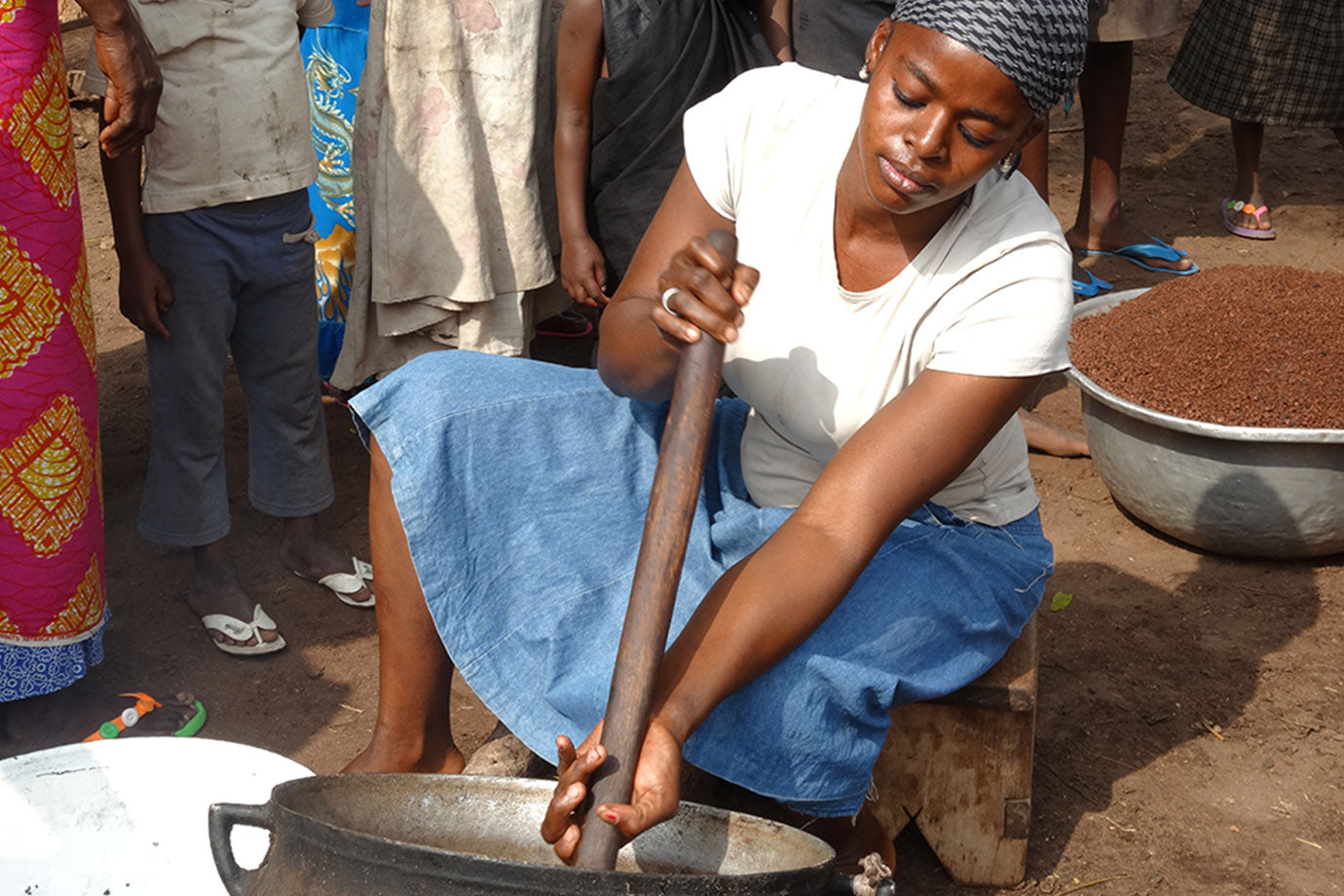
Helping create self-sufficiency
At evanhealy we take pride in partnering with the Village on various efforts. The premium we pay on Kperisi Shea Butter has seen over one hundred village women secure a better livelihood for their families, while providing three hundred and fifty school uniforms for their children. In 2015 we helped fund Organic and Fair Trade Certification. Additionally, we funded the construction of a milling shed and purchase and installation of a grinding mill – the life force of the community.
Since 2007
School Uniforms: 350+ | Women Engaged: 100+ | Kilos Purchased: 2,400+ | Premium Paid: 5-10%
Fair Trade + Organic Certification Co-Sponsor | Grinding Mill + Shed Sponsorship
To read more about Faces of the Earth Ethical Projects - click here
Kperisi Village Shea Butter is
featured in 15 of our key product

See the products in our store by clicking on the links below
Whipped Shea Butter With Olive Leaf | Whipped Patchouli Vanilla Shea Butter| Rose Cleansing Milk
Blue Lavender Cleansing Milk | Blue Chamomile Day Moisturizer | Whipped Moroccan Argan Body Butter
Whipped Shea Butter for Lips | Sweet Blossom Moisturizing Body Lotion | Wild Carrot Nourishing Eye Balm
Watch the video of our journey to Kperisi Village, Ghana.

